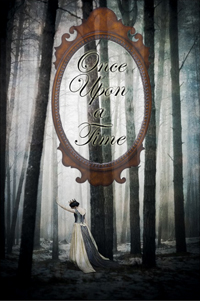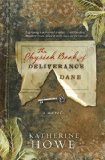
I’m currently reading Charlotte and Emily by Jude Morgan. I am new to the Brontës, having only read Jane Eyre and Wuthering Heights in the last three years. Upon reading Syrie James’s The Secret Diaries of Charlotte Brontë earlier this year, I became much more interested in the Brontës themselves. I highly recommend BrontëBlog if you want to keep up with Brontë references in both pop culture and academia. I haven’t read any Brontë biographies yet. Syrie James’s novel begins just as Charlotte Brontë has returned from Belgium. All of the surviving Brontës are adults, and their sisters Maria and Elizabeth, who died as children, are logically not a part of the story. Jude Morgan begins his novel with the death of Maria Branwell Brontë, wife of Patrick Brontë and mother of the six Brontë children. After a flash forward of a few years, Patrick Brontë seizes an opportunity to educate his daughters inexpensively and sends first Maria and Elizabeth, then later Charlotte and finally Emily to the Clergy Daughters’ School in Cowan Bridge, some forty miles away from Haworth, the Brontës’ home. Because Morgan chose to begin his story of the Brontës at an earlier time, his novel provides a glimpse not only of the Brontës’ mother, but also Maria and Elizabeth.
My first thought upon reading about Maria’s abiding patience and endurance in the face of outright child abuse at the school was that she sounded just like Helen Burns in Charlotte Brontë’s novel Jane Eyre. Eager to learn whether or not this was true or conjecture on behalf of Morgan, I searched for references to Maria as the inspiration for Helen, and I discovered some quotes from Elizabeth Gaskell’s Life of Charlotte Brontë. Indeed, Charlotte did claim, in the face of criticism that Helen was “too good to be true” (and I admit I felt the same way when I read Jane Eyre), that “she was real enough. I have exaggerated nothing there.” Mrs. Gaskell described an incident that Morgan works into his narrative in which Maria, not well enough to get up, was urged to stay in bed by the other girls, only to be abused by their teacher, Mrs. Andrews. Maria struggled to dress herself, urged the other girls to have patience, and was subsequently punished for being late (presumably to breakfast or class—Gaskell did not say).
After reading about Maria and learning that her story as presented by Jude Morgan was true, the first thing I wanted to do was go back in time and rescue her from that awful place and take care of her, which I’m sure her father and siblings wished they could have done. Her story is heartbreaking, moving, and sad. Given Patrick describes talking with eleven-year-old Maria “on any of the leading topics of the day with as much freedom and pleasure as with any grown-up person,” one cannot help but wonder what books Maria might have written had she lived.
I learned more about Maria Brontë at these websites:
- The Brontë Soul: Maria Brontë
- The Brontë Parsonage Museum: Maria Brontë
- GypsyScarlett’s Weblog: Maria Brontë: The Spirit of the Brontës
On an unrelated note, I am appreciating Morgan’s writing style a great deal. His use of stylistic fragments and run-ons to evoke events whirling out of control as well as occasional adjectives shifted out of order popped off the page because I have recently been teaching students these techniques using Image Grammar by Harry Noden. Though Noden gives examples from prominent writers in his book, it’s fascinating as a lover of the craft of writing and and avid reader to catch these interesting techniques in action.






